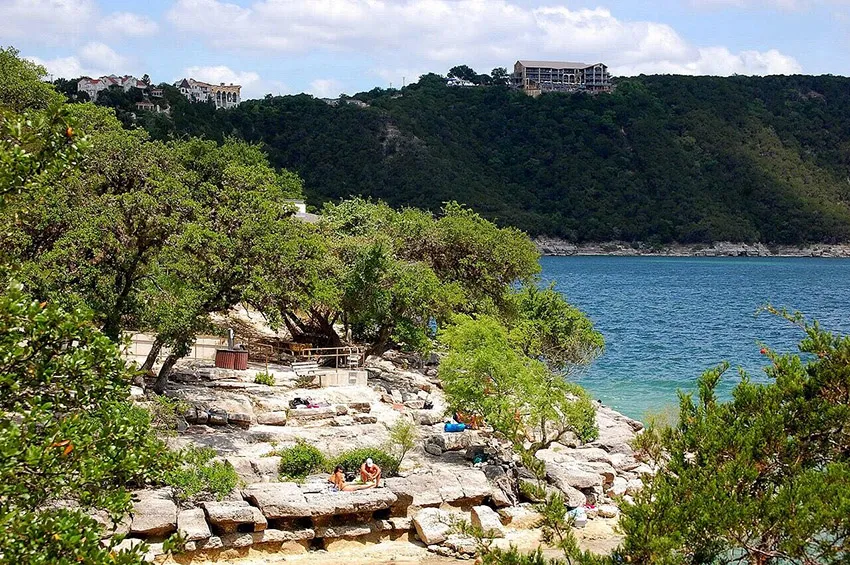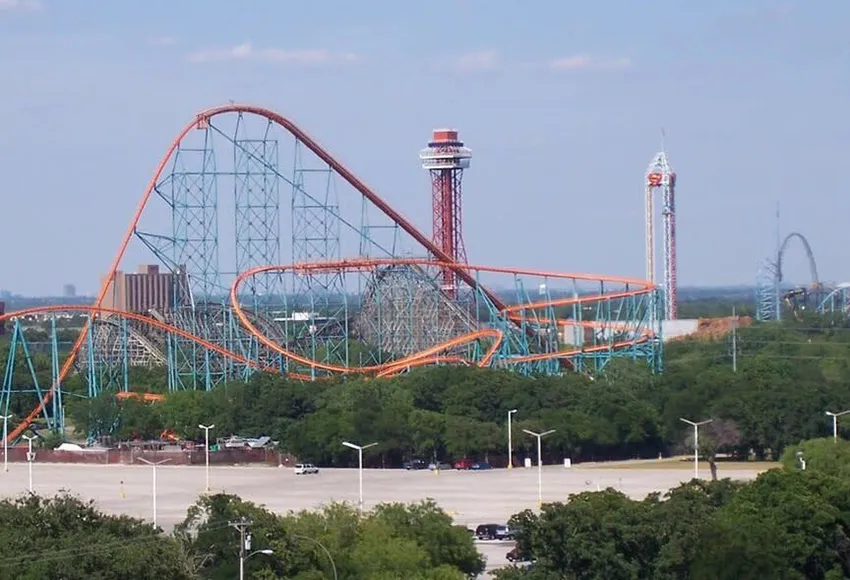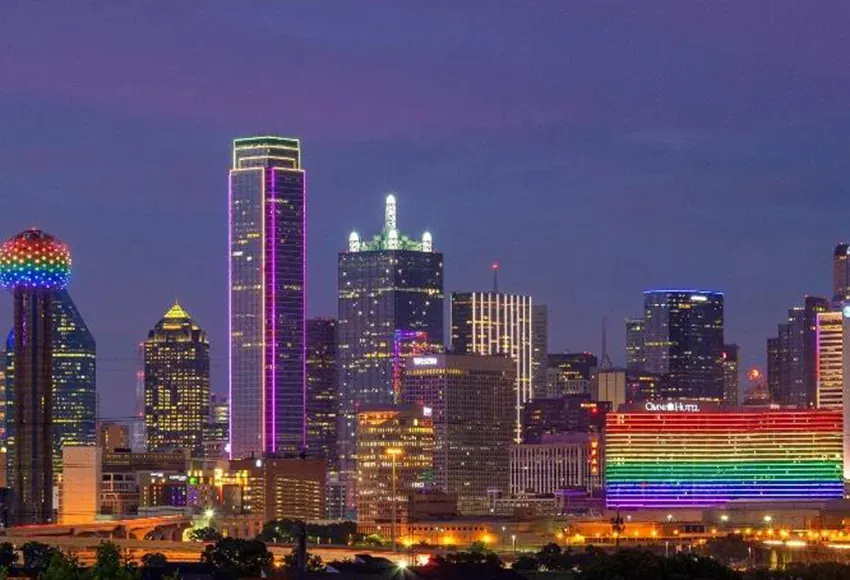My home state might not be what comes to mind when you hear the phrase "Queer travel destinations." Chances are, you'd think of well-known places such as Palm Springs, Provincetown, and the major urban centers of Queer life like New York and San Francisco. But not Texas.
That's not for lack of a good reason.
Texas is a state that disdains Queer life politically. Nonetheless, despite the loud antics and undeniably destructive outcomes of its red-dyed leaders, there's a lot more to it than its worst qualities. I wouldn't "recommend" it to Queer travelers, but neither would I discourage them from finding fun, joy, community, and a good meal while they're there – in fact, consider such encouragement this expat's way of practicing Texas hospitality.
The state is home to many peoples with rich histories, unique cultures, and decadent cuisines. Despite its popular image, Texas is highly urbanized, with its largest cities (Houston, San Antonio, Dallas, Austin, and Fort Worth) accounting for 5 of the top 15 in the US. Those also contain two of the most vibrant gayborhoods in the country – Oak Lawn in Dallas and Montrose in Houston – world-class shopping and dining, and nightlife that is the envy of cities of similar profiles.
The two places in Texas I've lived in have much to offer Queer residents and travelers. I spent my early college years in Austin, and later moved to the Dallas-Fort Worth metroplex, where I stayed a decade. Living as a Gay man in the state was always a challenge, but doing so in these cities made it possible, at times even easy, to find my people, live my truth, and be myself. This is a list of some of the reasons why.
Let's take a look at what Austin and Dallas-Fort Worth have to offer Queer travelers, starting with the capital: the progressive, creative, fun-loving proverbial "blueberry in the tomato soup."
Austin
Anti-Queer Gov. Greg Abbott hates Austin. Conservatives mockingly call the city of nearly one million "the People's Republic of Austin," and its left-to-left-of-center populace, eager to live up to its motto, "Keep Austin Weird!," accept it as a badge of honor.
Passersby compare Austin to Seattle and Portland, but with significantly more sun and a penchant for breakfast tacos. Despite not having its own Queer district, it holds the reputation of being a very Queer-friendly city.
Downtown Austin is home to several top-tier Queer venues. In the closest thing to a gayborhood there is here, the illustrious Oil Can Harry's, Rain, and the popular-with-the-Queers coffeeshop Halcyon bunch together around Fourth and Lavaca, with the Iron Bear nestled just up the street, camouflaged among the dives of the world-famous bar crawl known as Sixth Street. Cheer Up Charlie's lies in the Financial District, just blocks from the State Capitol, and the brand-new leather bar, the Austin Eagle, stands off the beaten path in the northeastern corner of town.

For the more (ahem) "naturally" inclined, Texas's only clothing-optional public park lies along the rocky shores of Lake Travis to the west. The gender-inclusive 18-and-over park is popular among sunbathers and free spirits, with an alcove that has unofficially become the "Gay" part. For the more modest and family oriented, Barton Springs near downtown offers a natural pool that runs 68 degrees year-round.
Austin is the live music capital of the world, boasting more such venues than any other US city (yes, even that one, in the other state starting with a T). It hosts two major music festivals every year – South by Southwest during spring break, and Austin City Limits at the end of each summer.
The South Congress district features quirky shops and eateries, and bits of local flavor lie scattered throughout town. Make sure to try the eclectic menus at Kerbey Lane Café, Maudie's Tex-Mex, and Magnolia Café, with a helping of Amy's Ice Cream for dessert.
Dallas-Fort Worth metroplex
The megalopolis in North Texas is a metropolitan complex ("metroplex") of 11 counties that sustains 7.6 million people. Geographically about the size of Connecticut but with over double its population, the metroplex contains 15 cities larger than 100,000, the largest of which are Dallas, Fort Worth, and Arlington.
The Queer gem of DFW is Oak Lawn, the gayborhood of Dallas. Centered around the intersection of Cedar Springs and Throckmorton and a short drive from downtown, the district has bars and nightclubs capable of accommodating every taste. Those looking for world-class drag shows can find them at Station 4, while those wanting a "Texas" experience (emphasis on the quotation marks) can two-step at the Round Up Saloon. Sue Ellen's is a vibrant bar popular among Lesbians, and JR's is open during the day for lunch and at night for drinks and dancing.
Other establishments along "The Strip," as the locals affectionately call it, include several eateries that anchor the community during the day, such as Hunky's Old Fashioned Hamburgers, Street's Fine Chicken, and Roy G's. Retails outlets include Skivvies and Package, which sell men's underwear, gear, and (what they are legally required to call) novelties, and an Out of the Closet thrift store.
About a mile away from this epicenter, on Lemmon and Mahana, the recently popular, cash-only Hidden Door has picked up the slack after the Dallas Eagle closed in 2020, becoming a haven for the bear and leather crowd, with a large outdoor patio and drinks strong enough to compete with Seattle's Diesel.
Dallas boasts world-class, luxury, and high-fashion shopping at places such as NorthPark Center, the Galleria Mall, and for the more down-to-earth, countless outlet malls popular among visitors, such as Grapevine Mills. Dallas possesses the sprawling flagship Half Price Books, roughly the size of a large department store.
Deep Ellum and the Bishop Arts District are two of the most exciting neighborhoods in Dallas, featuring shops, eateries, live events, and festivals. Wild Detectives, a hybrid coffee shop/bookstore/cocktail bar popular among artistic, intellectual, Queer residents and Latin expats, runs out of an old house in Bishop Arts. The Gay bathhouse, Club Dallas, stands adjacent to the light rail station in Deep Ellum.

Arlington, the city wedged between Dallas and Fort Worth, boasts two major ballparks, a water park, and Six Flags Over Texas, which has some of the largest, fastest roller coasters in the country and hosts Pride Month celebrations every June.
In Fort Worth, known locally as Cowtown, expect amazing barbecue in the Stockyards District and peruse the stretch of bars, eateries, and shops along Magnolia Street. Check out the town square in Denton, the college town to the far north of the metroplex, which has Recycled Books, several bars, restaurants, beer pubs, gaming taverns, and boutiques, all within an enjoyable walking distance of each other.
For Queer campers, Rainbow Ranch Campground lies to the south of DFW and to the east of Waco, while the more male-oriented, clothing-optional campground Grizzly Pines is located in Navasota, between Houston and Waco.
More to explore
While I haven't mentioned what's to be found in the cities of San Antonio and Houston, that is not to say that either should be ignored. My first visit to a Gay bar, in fact, was at the Bonham Exchange, right behind the Alamo in San Antonio. And I wish I could tell you the things I, um, can't remember from my nights at Ripcord and South Beach in Houston. But if you're going to be in those areas, do yourself a favor and check out what the locals tell you.
If you happen to be in DFW or Austin, however, make sure to tell them I sent you!


